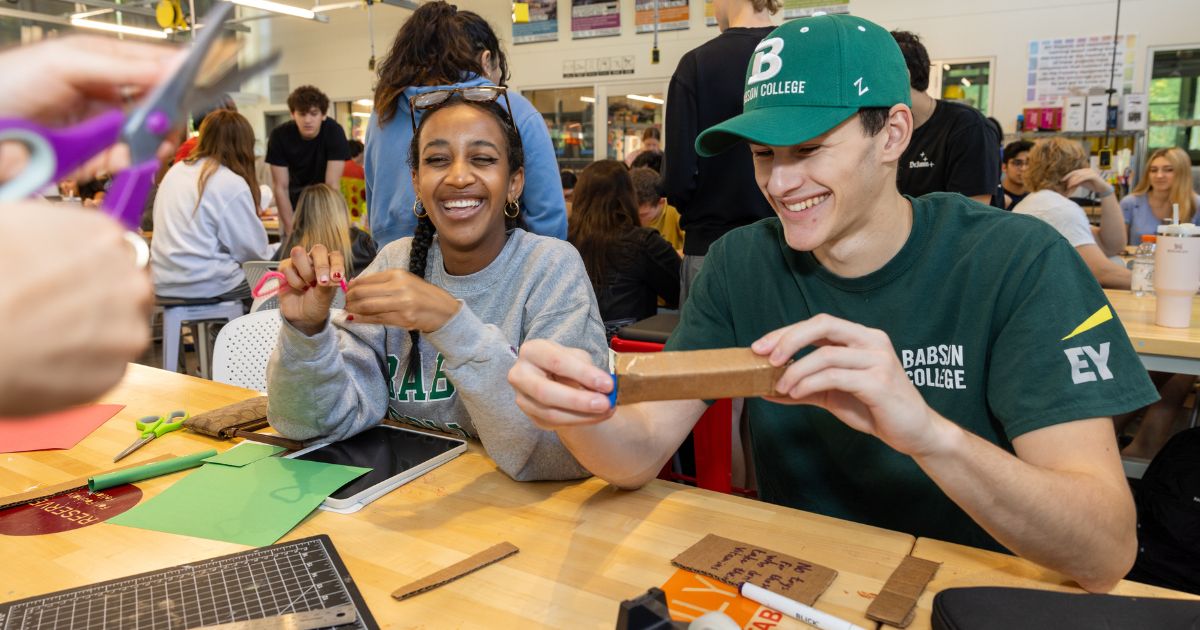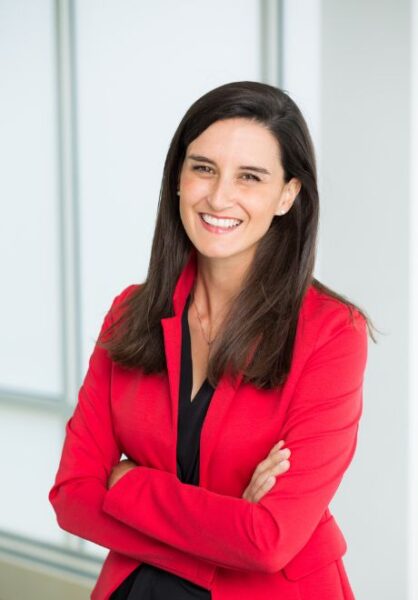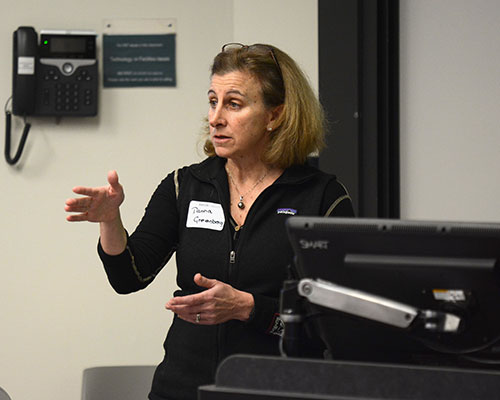A New Landmark Study Examines the Impact of the Babson FME

To be a student in FME can be, frankly, a whirlwind.
Through the course of a school year, the Foundations of Management and Entrepreneurship class, or FME as it’s commonly known, takes Babson College students though the process of starting a business. That means a lot of ups and downs.
Students may see their business idea rejected, or they may have disagreements with teammates. Their venture’s product may not sell well, or it may be held up with supply chain issues. Or, students may encounter a storm of other disappointing, frustrating, and unpredictable business issues.
“Students have real life experiences in this course,” says Eliana Crosina ’05, MBA’11, assistant professor of entrepreneurship. “The course can be emotionally challenging at times.”
Crosina was part of a team of professors who recently studied the impact that FME’s experiential learning can have on students. Published in the prestigious Academy of Management Learning & Education journal and reported on in The Chronicle of Higher Education, the study is landmark research for the College.
“It is our first major evidence-based research on a central curricular initiative here at Babson,” says Danna Greenberg, chair of the Management Division, associate dean of faculty, and the Walter H. Carpenter Professor.
The study confirmed what many students, professors, and Babson alumni may have long suspected—that the trials and struggles of FME, along with the support, mentorship, and reflection that the course offers, build resiliency and an entrepreneurial mindset in students. Even after the course ends, those benefits remain.
“It’s a mindset that transcends the classroom,” Crosina says. “Students carry this mindset with them and put it to work after FME.”
‘See What the Magic Is’
First taught in 1996, FME is a long-standing rite of passage for first-year students at Babson. As a College alumna, Crosina took FME as a student, and she remembers well working with a diverse team to build a business. “I always had this curiosity about how FME works,” she says. “We decided to take a close look and see what the magic is.”

Besides Crosina and Greenberg, who both discussed the FME study at last month’s Faculty Research Day, the academic team that researched the FME included Andrew Corbett, The Paul T. Babson Distinguished Professor of Entrepreneurial Studies, and Erin Frey, an assistant professor of management and organization at USC’s Marshall School of Business.
By bringing an outsider perspective, Frey played a critical role on the research team and took the lead in conducting interviews with FME students. Over 16 months, Frey conducted 133 interviews focused on student experiences during and after taking FME.
What the researchers found was that FME students face a reoccurring cycle, where they encounter something that challenges or upsets them (the professors called these “critical incidents”) and then must learn to process what happened.
These critical incidents can be interpersonal (a team member isn’t pulling his or her weight) or business related (the venture is falling behind schedule), and over and over, students need to make sense of these struggles (and their negative feelings related to them) and move on. “Over time, by going through this process, they develop a mindset,” Crosina says. “They start thinking they are or could be entrepreneurial.”
Ongoing reflection is built into FME to help students process these critical incidents. Also playing an essential role is the support and commitment of their professors, who provide coaching and mentoring. “This advice and support help immensely,” Crosina says. “So much of the work happens outside the classroom, when the student meets with you.”
An Enduring Mindset
Interviews for the FME study began in the fall of 2019, just as a new batch of first-year students came to Babson, and continued during the course and in the months after it was over, when the world was in lockdown and dealing with the COVID-19 pandemic in 2020.

That timing allowed the researchers to see just how strong the resiliency and entrepreneurial mindset developed in FME students really are. Would the ability to withstand setbacks stay with students in such an uncertain time as the pandemic?
Turns out the answer to that question is yes. “We saw them engaging with this mindset to handle this incredible situation,” Greenberg says. “They were taking the learning with them.”
The research provides a significant validation of FME and experiential learning. At Babson and throughout academia at large, experiential learning is becoming increasingly common. “At Babson, it is a significant part of our pedagogy in all our programs,” Greenberg says.
For those interested in Babson’s particular brand of experiential learning, the study illustrates the importance of that reoccurring cycle, of struggle and support, of difficulties and reflection, of being upset and carrying on.
“From an academic perspective,” Greenberg says, “our hope is this provides foundational insight to help the field understand how and what students learn from experiential entrepreneurship education.”
Posted in Entrepreneurial Leadership, Insights




